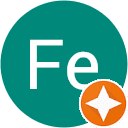Thinking of using your retirement savings for a down payment on a Bay Area home? It’s strategic but risky. Understand withdrawal rules and penalties, like exemptions for first-time buyers. Be aware of potential tax implications. Explore other funding sources and their impact on your retirement nest egg. To make informed decisions align with your financial goals, assess long-term effects, and consult with a financial advisor. Plan wisely for a secure financial future. More insights await on Bay Area housing market specifics, financial tips, and strategies for your consideration.
Key Takeaways
- Understand retirement account withdrawal rules before making decisions.
- Consider tax implications of using retirement savings for a down payment.
- Explore alternative sources for down payment like gifts or side hustles.
- Evaluate the impact on your retirement nest egg before withdrawing funds.
- Consult with a financial advisor to assess the long-term consequences.
Pros and Cons of Using Retirement Savings

Using your retirement savings for a down payment can be a strategic yet risky financial move. While it may provide you with the opportunity to invest in a home and potentially benefit from its investment growth, there are important considerations to keep in mind. One key aspect to ponder is the potential impact of an early withdrawal on your retirement savings. Taking money out of your retirement account before you reach the eligible age can result in penalties and taxes that diminish the overall value of your savings.
Furthermore, tapping into your retirement funds for a down payment means missing out on the compound interest and potential market gains that could have boosted your nest egg over time. It’s essential to weigh the benefits of homeownership against the long-term consequences of depleting your retirement savings early. Before making this decision, consider consulting with a financial advisor to fully comprehend the implications and risks associated with using retirement funds for a down payment.
Retirement Account Withdrawal Rules

Understanding the rules for withdrawing from your retirement account is essential before making any financial decisions related to using those funds. When considering an early withdrawal from your retirement account for a down payment on a home, it’s important to be aware of the potential penalties. In most cases, withdrawing funds from your retirement account before the age of 59 ½ may incur an early withdrawal penalty of 10% on top of the regular income tax you’ll owe on the distribution.
However, there are penalty exemptions that may apply in certain situations. For instance, if you’re a first-time homebuyer, you might be eligible to withdraw up to $10,000 from your traditional IRA without incurring the early withdrawal penalty. Additionally, if you have a Roth IRA, you can typically withdraw your contributions (but not earnings) at any time without penalty or tax for a home purchase.
Before tapping into your retirement savings, make sure you understand the rules and potential consequences of early withdrawals to make an informed decision that aligns with your financial goals.
Tax Implications and Considerations

Before making any decisions regarding using your retirement savings for a down payment, it’s crucial to think about the tax implications and related considerations. One key consideration is the tax implications of withdrawing funds from your retirement accounts. Withdrawals from traditional IRAs and 401(k) plans are generally taxed as ordinary income, which could potentially increase your tax bill for the year in which you make the withdrawal. On the other hand, withdrawals from Roth IRAs may be tax-free if certain conditions are met. Additionally, you should consider the impact on the investment growth of your retirement savings. By withdrawing a portion for a down payment, you may miss out on potential future growth that could have a significant effect on your retirement funds. Below is a table summarizing key tax implications and considerations:
| Tax Implications | Considerations | Investment Growth |
|---|---|---|
| Taxed as ordinary income | Impact on current tax bill | Potential loss of future growth |
Alternative Down Payment Sources

Explore exploring different avenues to secure funds for a down payment on a property. One option to explore is exploring gift options or potential inheritances. If you have family members willing to gift you money towards your down payment or if you’re expecting an inheritance, these could be viable sources to explore.
Another alternative is to look into generating extra income through a side hustle or freelance work. By dedicating time to a side job or freelance gigs, you can accumulate additional funds that can be put towards your down payment. This can help boost your savings faster and bring you closer to your home buying goal.
Impact on Retirement Nest Egg

Exploring alternative sources for a down payment can potentially impact your retirement nest egg as you consider utilizing those funds for your property purchase. While using retirement savings for a down payment may seem like a viable option to secure a home in the Bay Area, it’s important to assess the long-term consequences on your retirement security.
Dipping into your retirement funds can greatly reduce the amount of money available for your post-work years. This decision could lead to a smaller nest egg than anticipated, affecting your financial stability during retirement. It’s vital to weigh the immediate benefits of homeownership against the potential risks to your long-term financial well-being.
Before withdrawing from your retirement savings, consider consulting with a financial advisor to understand the impact on your overall retirement plan. They can help you evaluate the trade-offs and explore alternative down payment sources that may have less impact on your retirement security in the future. Remember, preserving your retirement nest egg is key to ensuring financial stability in the long run.
Bay Area Specific Market Insights

When evaluating the Bay Area real estate market, it’s crucial to consider current trends and dynamics to make informed decisions. Here are some key insights to help you navigate the market:
- Market Trends: Stay updated on the latest market trends to understand factors influencing prices and demand.
- Housing Affordability: Keep an eye on housing affordability metrics to gauge if the market aligns with your budget.
- Inventory Levels: Monitor the inventory levels in different neighborhoods to identify areas with more housing options.
- Competitive Analysis: Conduct a competitive analysis to assess how quickly homes are selling and at what prices compared to the listing prices.
Financial Planning Tips and Strategies

Develop a strong financial plan to secure your future and achieve your long-term goals. When considering using retirement savings for a down payment, it’s vital to prioritize investment diversification. Diversifying your investments can help spread risk and potentially increase returns over the long term, enhancing your financial stability.
Additionally, incorporating budgeting techniques into your financial plan is important. Create a detailed budget that outlines your expenses and income to make sure you’re living within your means and can continue to save for retirement while also saving for a down payment.
Consider working with a financial advisor who can help you navigate the complexities of balancing retirement savings and homeownership goals. They can provide personalized guidance on investment diversification strategies and offer tailored budgeting techniques to optimize your financial situation.
Frequently Asked Questions
Are There Any Special Programs or Incentives in the Bay Area for First-Time Homebuyers Using Retirement Savings for a Down Payment?
In the Bay Area, first-time homebuyers using retirement savings for a down payment can benefit from government incentives and specialized programs that aim to support their home purchasing journey. These initiatives can provide valuable financial assistance.
How Does Using Retirement Savings for a Down Payment Affect Eligibility for Certain Government Assistance Programs Like Medicaid or Social Security Benefits?
Using retirement savings for a down payment may impact your eligibility for government assistance programs like Medicaid or Social Security benefits. It’s essential to understand the retirement account implications before making any decisions that could affect your benefits.
Are There Any Restrictions on the Types of Retirement Accounts That Can Be Used for a Down Payment on a Home in the Bay Area?
When buying a home in the Bay Area, consider the types of retirement accounts eligible for down payments. Some restrictions apply, impacting mortgage qualification and government assistance eligibility. Understand the financial implications for homeowner stability.
How Does Using Retirement Savings for a Down Payment Impact the Ability to Qualify for a Mortgage in a Competitive Housing Market Like the Bay Area?
Using retirement savings for a down payment can lower your credit score temporarily due to funds moving. While it may impact mortgage approval initially, consistent payments and financial stability can rebuild your creditworthiness.
What Are the Long-Term Implications of Using Retirement Savings for a Down Payment on the Overall Financial Health and Stability of a Bay Area Homeowner?
Using retirement savings for a down payment can have long-term consequences on your financial stability. It may impact your ability to retire comfortably and could leave you vulnerable in emergencies. Consider the implications carefully before making this choice.
Conclusion
Overall, using retirement savings for a down payment on a Bay Area home can be a strategic move, but it comes with risks. According to a recent survey, 23% of Bay Area homebuyers have tapped into their retirement accounts for a down payment.
While this can help you achieve homeownership in a competitive market, it’s important to carefully weigh the pros and cons and consider alternative sources before making a decision. Make sure to consult with a financial advisor for personalized guidance.



















